






Phono-2
MkII
High Class Phono Preamplifier
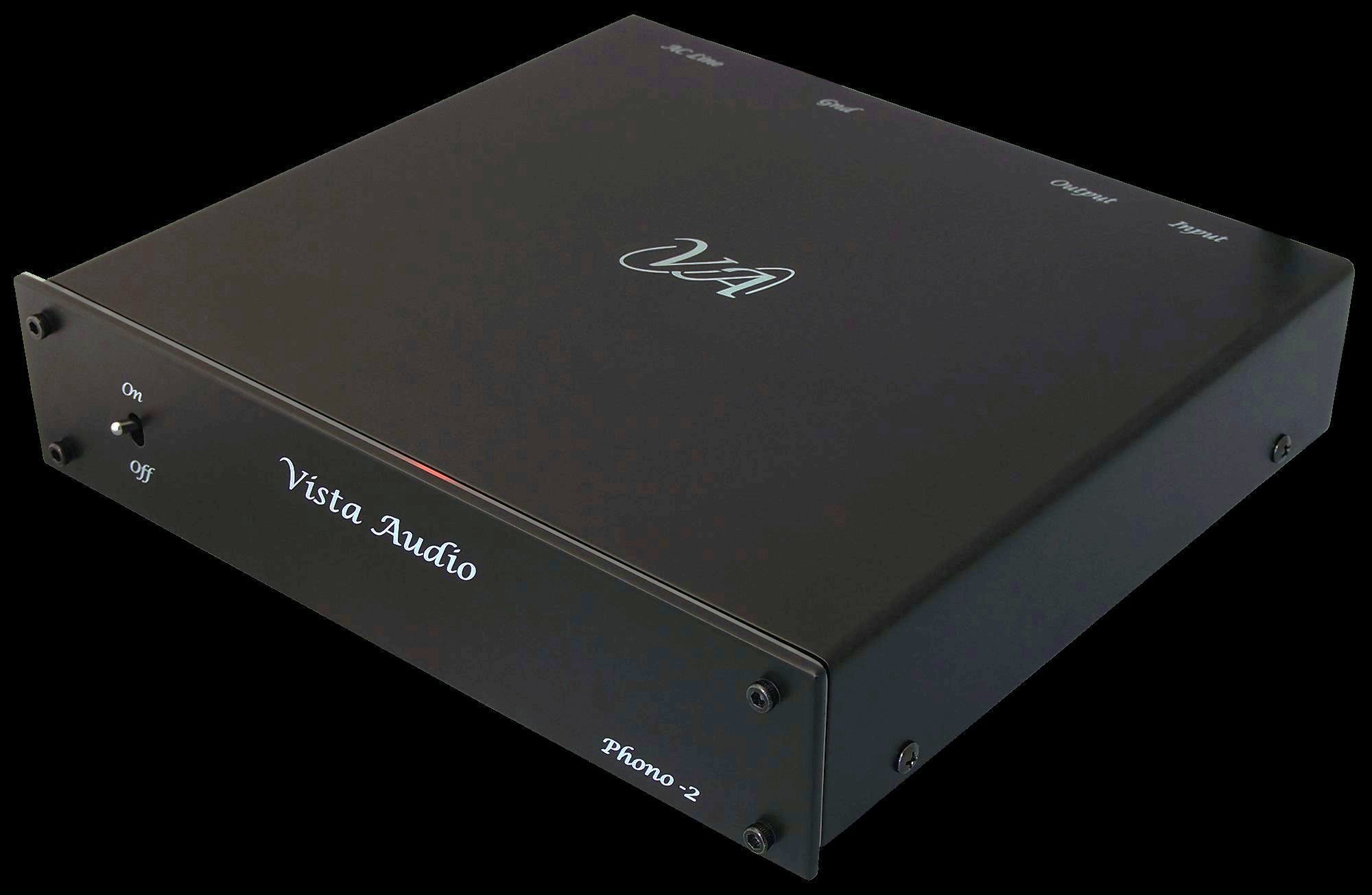
Phono-2 MkII is a result of
our commitment to continuous learning, which results in ever-increasing
performance levels for all classes of our products.
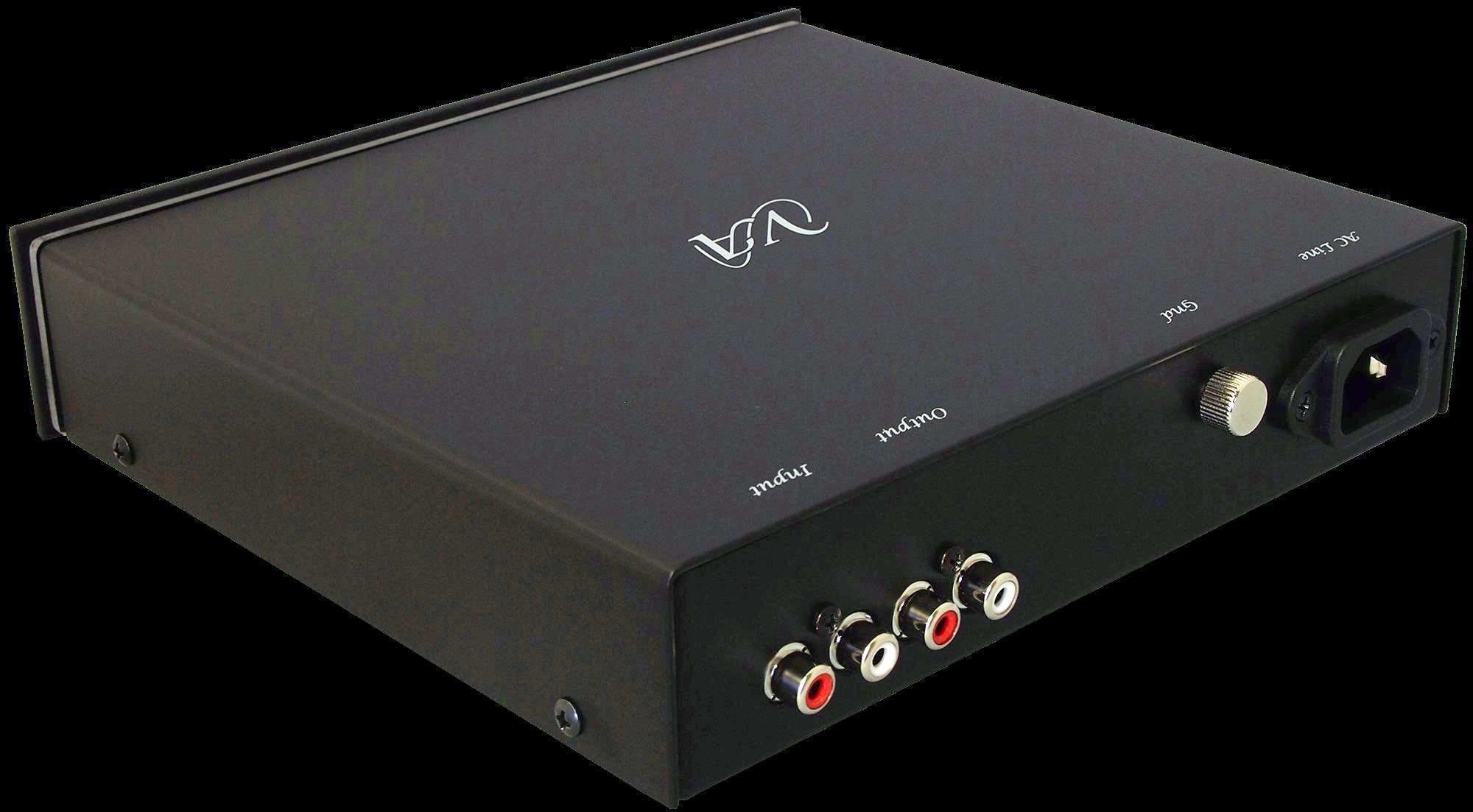
Redesigned
PCB and integrated custom transformer make the MkII an even stronger
performer with the wide variety of MM and, particularly, MC cartridges.
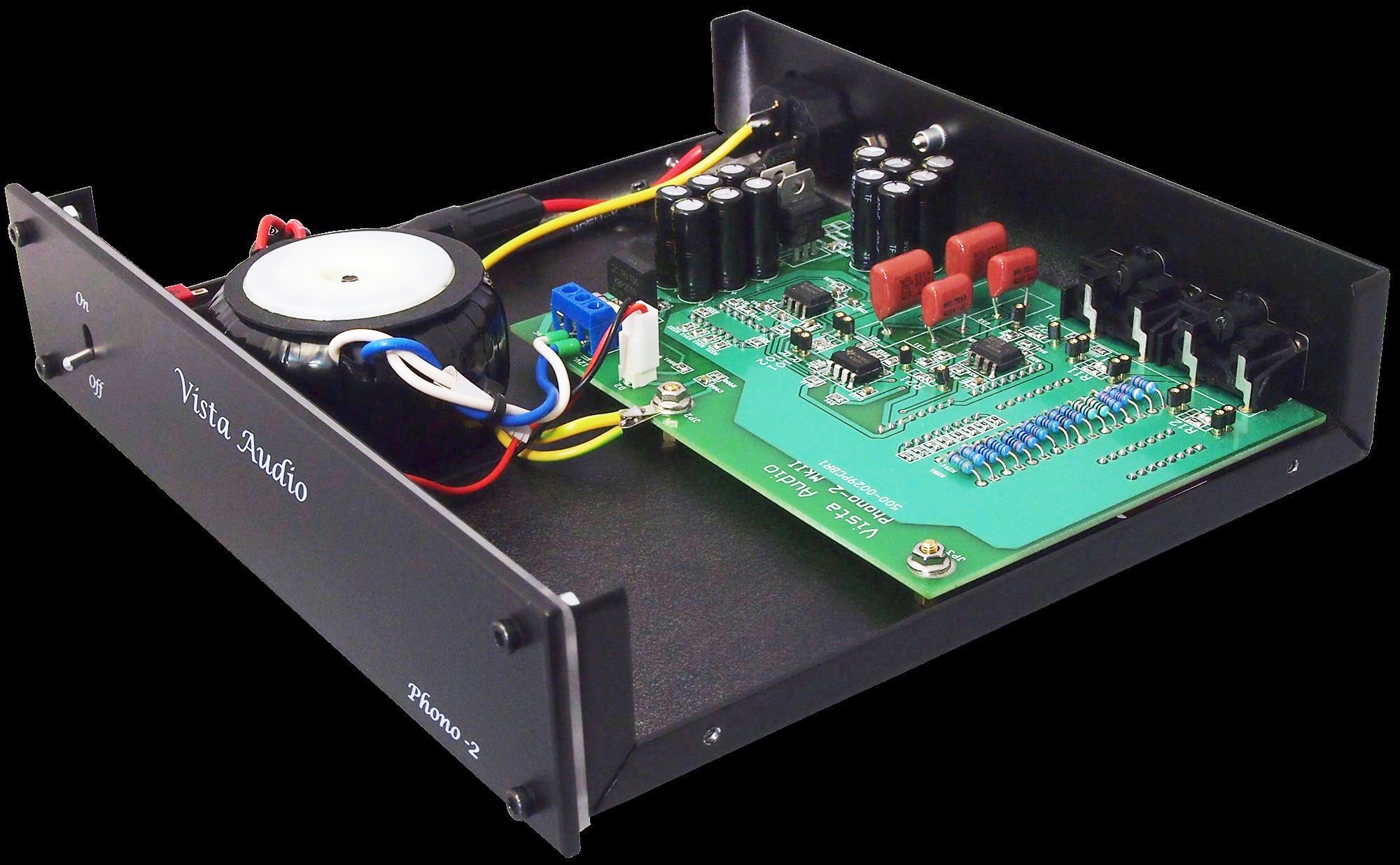
Bottom
side of the Phono-2 MkII hosts micro switches which are used to set cartridge
loading ("Load"), preamplifier
gain ("Gain") and output
filtration ("Low-pass
filter").
Examples
of optimum load and gain settings for various cartridges are listed here.
The image
below shows a unit set for the 47 kOhm load, 40 dB gain and no output
filter.
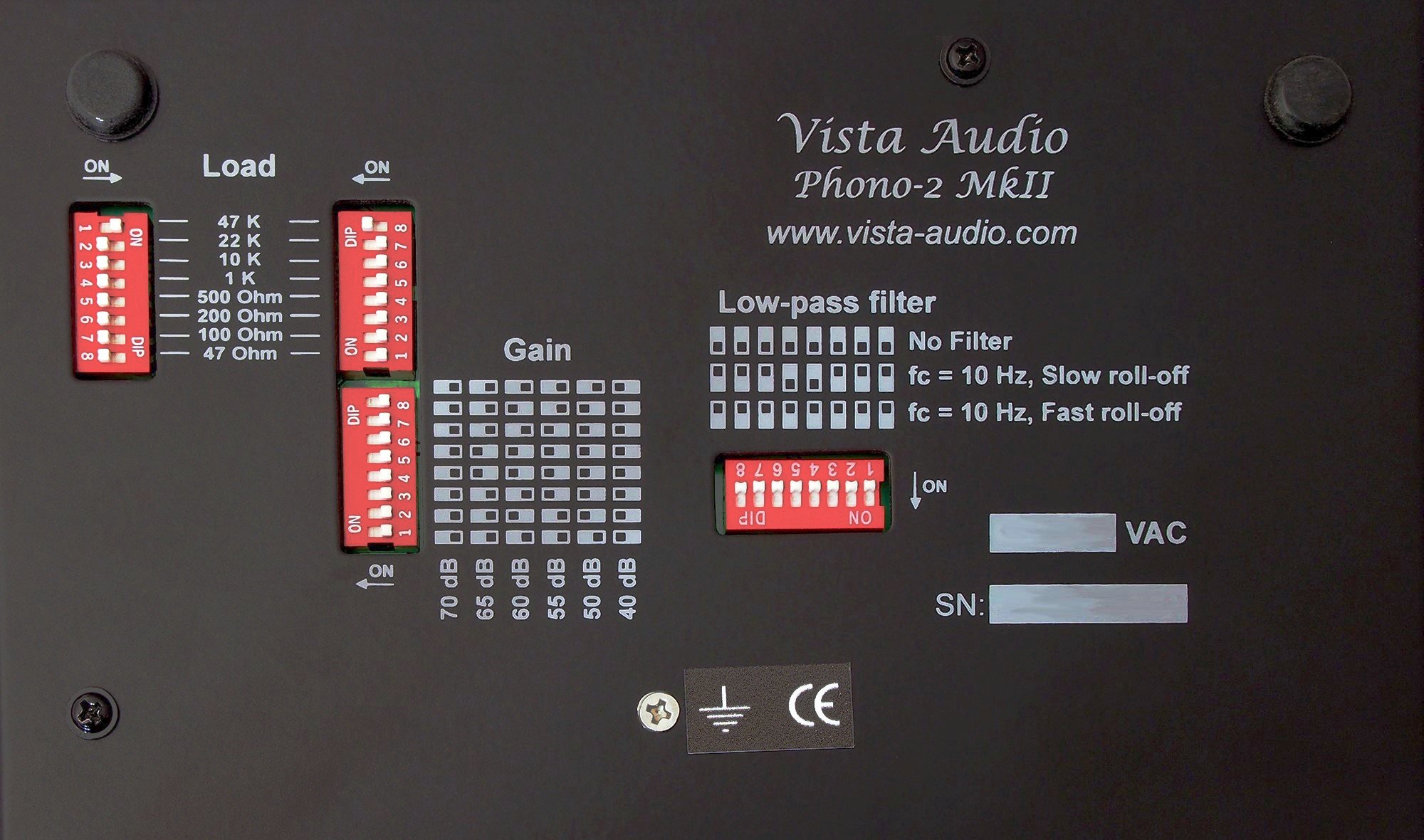
Eight
discrete loads can be set by using individual switches (47 k, 22 k, 10 k,
1 k, 500 Ohm, 200 Ohm, 100 Ohm and 47 Ohm). The cartridge load is set by
engaging switches as indicated by the legend printed between the
switches. The picture below illustrates
load setting of 200 Ohm.
By combining loads, many more different combinations are possible (for
example - by combining the 22 k and 10k switches, the resulting load will be
6.9 kOhm).
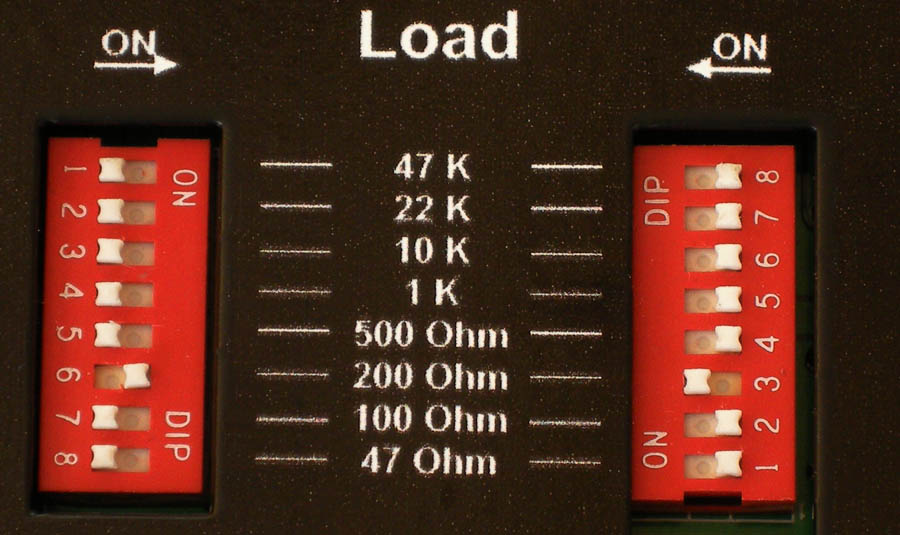
If that level of
flexibility is not
sufficient, similarly to the Phono-1's load and gain
optimization, the Phono-2
MkII can have unlimited settings available by removing the top cover and
accessing terminals for insertion of additional loading resistors and
capacitors. Those terminals are marked R11 and R12 for loading resistors
and C11 and C12 for loading capacitors.
NOTE:
in order to accurately load the cartridge with the additional
resistors, all microswitches on the rear panel should be in the OFF
position. When adding a loading capacitance, the default capacitance of
50 pF should be accounted for: as an example - if the total loading
capacitance of 200 pF is desired, additional capacitor needs to have
value of 150 pF. Capacitors and resistors with lead diameter in the
range of 0.025-0.032" (0.6-0.8mm) can be safely inserted. Larger
diameter may cause damage to the sockets.
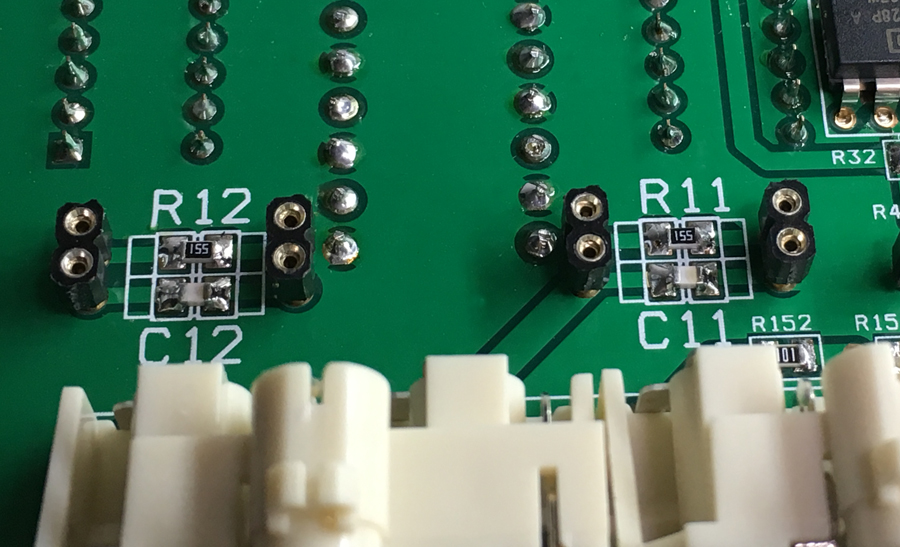
There
are six different gain settings possible: 40 dB, 50 dB, 55 dB,
60 dB,
65 dB and 70 dB. The preamplifier gain is set by engaging microswitches
as indicated by the printed legend next to the switch. The picture
below illustrates the gain setting of 65 dB.
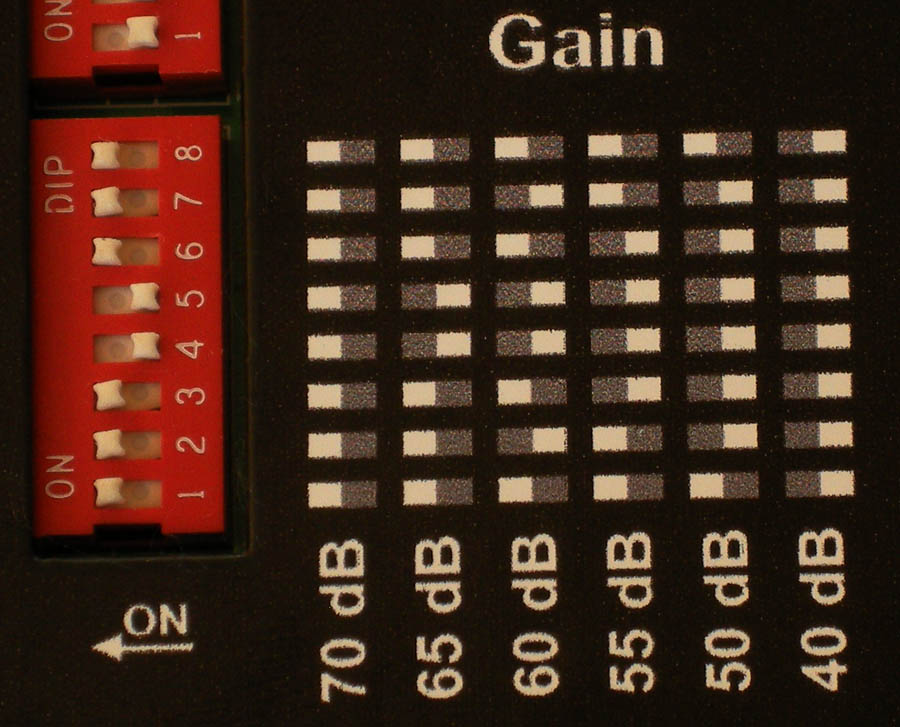
The Phono-2 MkII features an
innovative extension of the Phono-1's
active offset cancellation circuit to provide output filtration without
adding capacitors into the signal path.There are three available
settings:
1)
No Filter: this setting leaves only the active offset cancellation
engaged and the preamplifier's bandwidth is flat to 5Hz.
2)
10 Hz, Slow roll-off filter: with this setting engaged, the Phono-2 MkII
bandwidth goes down to 10 Hz, but roll-off starts at about 40 Hz. This is
the most useful setting for majority in real-life turntable setups. We
have
also found this setting helpful with records equilized by the IEC RIAA
curve.
3)
10 Hz, Fast roll-off filter: our version of subsonic (rumble) filter.
Bandwidth goes down to 10 Hz, but roll-off starts below 20 Hz, thus
having no effect on audio frequencies.
The picture
bellow illustrates low pass filter setting "10 Hz, Slow roll-off"
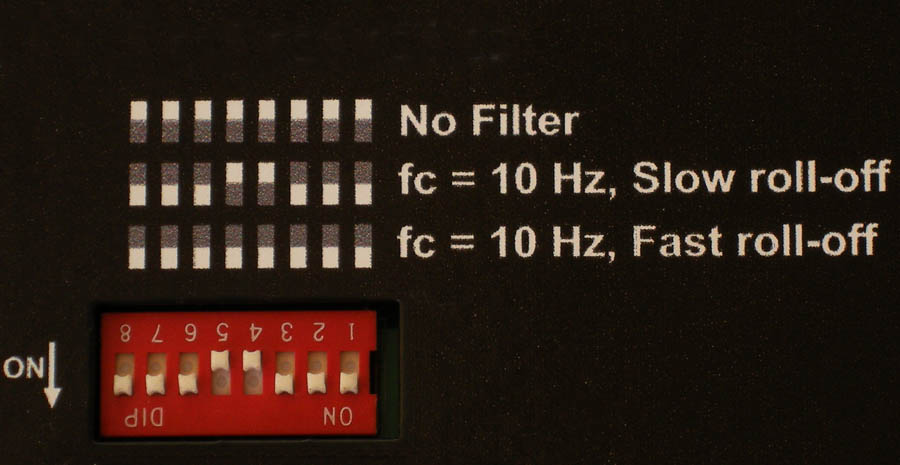
SPECIFICATIONS:
. Class A operation when Phono-2 MkII is connected to a preamplifier with input
impedance greater than 1 kOhm
. Direct Coupling (no capacitors in the signal path)
. Passive RIAA circuit
. Frequency range: 5 Hz to 40 kHz with no filter, 10 Hz to 40 kHz
with output filter
. Input resistance: Eight presets (47 Ohm to 47 kOhm) plus internal
sockets for custom loading
. Input capacitance: 50 pF plus internal sockets for adding custom
capacitance
. Gain: 40 dB to 70dB, adjustabe in six steps, 5 dB each
. Dimensions W x L x H (inches): 8.3 x 8.1 x 2 inch
. Dimensions W x L x H (mm): 210 x 205 x 50 mm
. Weight (lb): 2.4 lb
. Weight (kg): 1.1 kg
. Input voltage - Please note:
There are two versions of the Phono-2 MkII, with 120 V and 230 V input voltage.
These two versions are sold world-wide. The power cord does not ship
with the unit: all power cords need to meet local
safety
regulations. A power cord with a standard "PC
plug" (standard C13 connector) can be used. Minimum wire
cross section of the power cord should be AWG18 (or 1.0 mm2) but for reasons of quality and durability we suggest using power cords with AWG16 (or 1.5 mm2) wires.
User manual (PDF) can
be downloaded here.



















